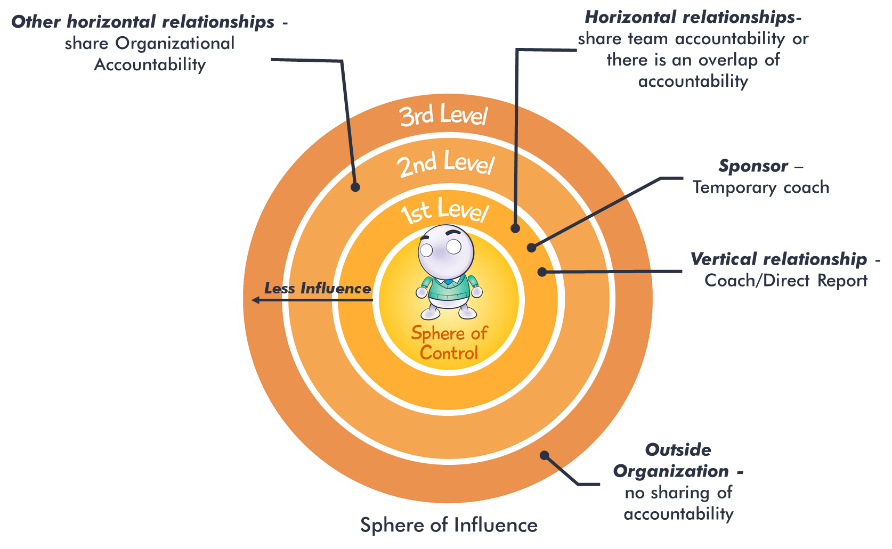Matrix Management Wiki
Home » The Relationship Management Key » 6K. Managing Successful Relationships
- 6K1. A successful relationship is one in which both parties treat each other as equals, and where both parties operate together to deliver an outcome that supports organizational, team, and individual accountability.
- 6K2. A key to having successful relationships is the ability to understand the difference between sphere of control and sphere of influence.
- 6K2i. An individual’s sphere of control is comprised of the one thing that individual can control—themselves.
- 6K2ia. The only person we can control is ourselves. We can control our beliefs, attitudes, thoughts, actions, words, feelings, etc.
- 6K2ii. An individual’s sphere of influence is the cumulative range of the vertical and horizontal relationships he has available to use across the organization; the relationships that reside outside of the sphere of control.
- 6K3. First-level relationships are the ones that an individual has the most influence over.
- 6K3i. Vertical authority relationships are first-level relationships because a coach has a high level of influence over the people he has a coach-to-direct report relationship with.
- 6K3ii. Sponsorship relationships fall into that first level of influence, since the sponsor is accountable for the performance of the team leader.
- 6K3iii. Horizontal relationships that include the sharing of accountability fall into the first level of influence because of the strong connection that is formed from shared team accountability. When there is shared team accountability, the people involved are tied together by their commitment to a common outcome.
- 6K4. Second-level relationships are those relationships an individual has with every accountable person in the organization that don’t fall into the first-level sphere of influence.
- 6K4i. All remaining horizontal relationships without shared team accountability fall into the second level of influence because the individuals share organizational accountability which ties them together, although not as strongly as shared team accountability.
- 6K5. Third-level relationships are those relationships where there is no shared accountability.
- 6K5i. Relationships with people outside the organization are third-level relationships because there is no shared team or organizational accountability together.
- 6K5ii. Figure 6.10. Sphere of influence.


